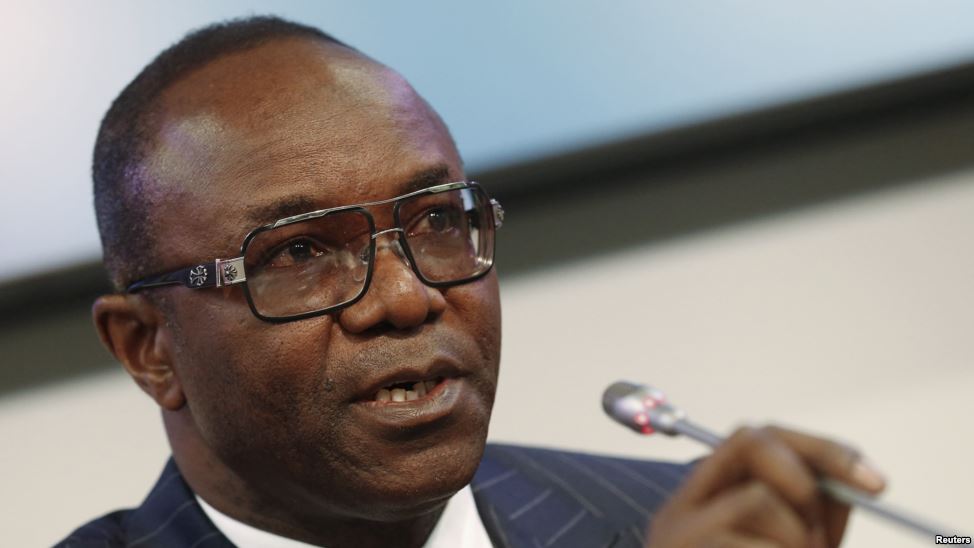- Three NNPC Chiefs Fired Over Missing N11bn Petrol
The Nigerian National Petroleum Corporation on Thursday sacked three of its senior officials and deployed four others in vacant positions.
Although the corporation did not state why the officials were sacked, it was gathered that the affected directors and a manager were allegedly involved in the N11bn missing petrol scandal that was recently established by the corporation.
The Group General Manager, Group Public Affairs Division, NNPC, Mr. Ndu Ughamadu, said the officials were retired by the corporation but gave no reason for the action.
Ughamadu said, “In line with the ongoing reforms in the Nigerian National Petroleum Corporation, the management has announced the retirement of some staff and the deployment of others. The retired staff members are Mrs. Esther Nnamdi-Ogbue, Managing Director, NNPC Retail Limited; Mr. Alpha P. Mamza, Executive Director, Operations, NNPC Retail Limited; and Mr. Oluwakayode Erinoso, Manager, Distribution, NNPC Retail Limited.
“Those redeployed are Mr. Adeyemi Adetunji, Managing Director, NNPC Retail Limited; Mr. Lawal Bello, Executive Director, Operations, NNPC Retail Limited; Mrs. Affiong Akpasubi, Executive Director, Services, NNPC Retail Limited; and Mr. Agwandas A. Andrawus, Manager, Distribution, NNPC Retail Limited.
“The appointments take effect immediately.”
Until his new assignment as the Managing Director of NNPC Retail, Adeyemi was the General Manager, Strategy and Planning, Gas and Power, and also former General Manager, Transformation Office.
The Group Managing Director, NNPC, Dr. Maikanti Baru, charged the redeployed staff members to remain committed to their duties in line with the transformation aspirations of the management of the corporation.
Last month, the NNPC declared that it would fully recover over 130 million litres of Premium Motor Spirit, popularly known as petrol, valued at N11bn and stored in the facilities of two indigenous downstream operators, MRS Limited and Capital Oil and Gas Limited, under a throughput arrangement to ensure a robust strategic reserve.
It commenced investigation into the missing product, a development that led to the interrogation of the Capital Oil boss, Mr. Ifeanyi Ubah, by operatives of the Department of State Services for several days.
Officials at the corporation told our correspondent in Abuja on Thursday that the sacked management employees were found culpable for the missing 130 million litres of petrol and that that was the major reason for their exit.
The corporation’s Chief Operating Officer, Downstream, Mr. Henry Ikem-Obih, had explained that the missing petrol was discovered earlier in the year when the NNPC wanted to access the over 100 million litres of petrol stored at the Capital Oil depot for the NNPC Retail, as well as over 30 million litres in MRS Limited’s depot, both in the Apapa area of Lagos.
“We instructed the Nigerian Products Marketing Company, a subsidiary of the NNPC, to send additional trucks to those locations to move products for distribution aimed at meeting a supply shortfall we discovered in the market; but after days of not being able to access the terminals, we had to take a decision as the NNPC management had to invite auditors and inspectors to go and do a physical check on the inventories,” Ikem-Obih explained.

 Naira4 weeks ago
Naira4 weeks ago
 News4 weeks ago
News4 weeks ago
 Naira4 weeks ago
Naira4 weeks ago
 Travel3 weeks ago
Travel3 weeks ago
 Jobs4 weeks ago
Jobs4 weeks ago
 Naira3 weeks ago
Naira3 weeks ago
 Naira3 weeks ago
Naira3 weeks ago
 Investment4 weeks ago
Investment4 weeks ago






























